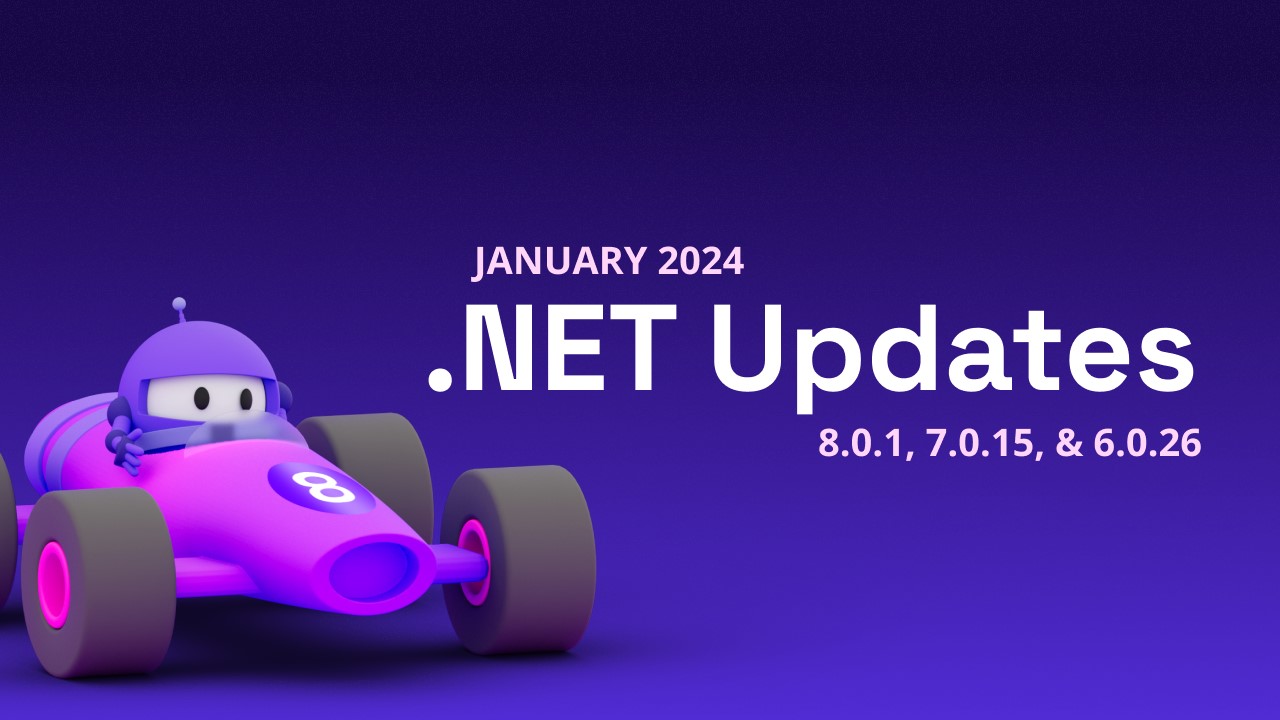- MindByte Weekly Pulse: Weekly IT Insights: Quick GitHub, Azure, & .NET Updates
- Posts
- MindByte Issue #58: Tech Innovations and Insights
MindByte Issue #58: Tech Innovations and Insights
Unveiling GitHub's Latest IssueOps, Exploring Git's Depths, and Navigating .NET's New Terrain
Hello and welcome to this week’s edition!
I'm excited to share with you a collection of insightful articles that caught my eye in the dynamic world of technology. From exploring innovative architectural strategies to delving into the latest .NET updates, there's a lot to cover. So, let's dive in and discover what's new and noteworthy!
GitHub Digest
Revolutionizing Access Control with GitHub IssueOps: Philips' Smart Strategy
Discover Philips' innovative approach to 'Just In Time' access control using GitHub IssueOps, a method that's as clever as it is effective.
This strategy utilizes GitHub issues to request privileged access, which is then executed through a workflow.
What makes it stand out? The access can be terminated either by closing the issue or through a timeout, ensuring a controlled and audited method of resource access.
This article not only showcases a practical use of IssueOps but also offers insights into enhancing security and efficiency in access management. Dive in to learn how to implement this smart, audited approach in your operations.
Doubling Runner Capabilities for Open Source
GitHub has just supercharged the open-source world with an upgrade to GitHub Actions-hosted runners.
For workflows triggered from public repositories, GitHub now offers 4-vCPU runners that bring a whopping 25% increase in performance for most CI/CD workloads, and they've achieved this without requiring any configuration changes from developers.
With 4-vCPUs, 16 GiB of memory, and 150GiB storage, these new machines offer double the processing power and memory, and more than ten times the storage capacity of the previous models.
Martin Woodward, GitHub’s VP of Developer Relations, emphasizes this as a vital investment in the open-source community, which saw over 7 billion build minutes with GitHub Actions last year.
Mastering Git: FreeCodeCamp's Insightful Guide to 'Gitting Things Done'
Dive into the depths of Git with FreeCodeCamp's enlightening book, "Gitting Things Done."
This free resource isn't just another how-to guide; it's an exploration into the intricacies of Git, designed to elevate your understanding from user to master.
The book challenges you to look beyond the surface, asking critical questions about what happens during operations like git commit. It's not just about understanding diffs or snapshots; it's about gaining a professional grasp of one of the most widely used tools in software development.
By reading this book, you'll not only resolve merge conflicts or rebase with ease but also approach unexpected Git scenarios with confidence. It's time to move from just using Git to truly 'getting' Git, enabling you to Git things done with a newfound level of expertise.
Coding Corner
Slack's Leap to Resilience: Implementing Cell-Based Architecture
Having recently delved into cell-based architectures in a knowledge session at work, I found Slack's transition to this model particularly compelling.
Over the last 1.5 years, Slack has transformed its infrastructure to combat the vulnerabilities of networking outages in single availability zones. By adopting a cell-based architecture, Slack has significantly reduced the 'blast radius' of issues, ensuring more robust fault isolation and quicker response times.
This strategic shift resonates with the principle of keeping fault domains small, a key takeaway from my recent learning.
What makes Slack's approach stand out is its ability to reroute traffic away from affected zones swiftly, enhancing both user experience and system resilience.
This move by Slack is a testament to the power of cell-based architectures in building scalable, fault-tolerant digital ecosystems.
Martin Fowler Updates His Seminal Work on Continuous Integration
Martin Fowler, a leading voice in software development, has refreshed his essential piece on Continuous Integration, providing a treasure trove of updated insights for modern DevOps.
This revision is more than just a facelift; it's a comprehensive update that reflects the evolving landscape of software development and integration practices.
Fowler's work has long been a cornerstone in understanding and implementing Continuous Integration, and this updated version is no exception. It's a must-read for anyone looking to stay at the forefront of DevOps methodologies, offering valuable guidance and best practices refined for today's tech challenges.
.NET Nook
Streamlining Exception Handling in .NET 8 with IExceptionHandler
.NET 8 introduces a game-changer for ASP.NET developers: the IExceptionHandler interface. This new feature is set to simplify exception handling significantly.
By registering an implementation of IExceptionHandler in your dependency injection (DI) container, you can ensure that any exception encountered will pass through this specialized middleware.
This approach not only centralizes error management but also enhances the maintainability and clarity of your code. Dive into the Code Maze article to learn how to leverage IExceptionHandler for more efficient and effective error handling in your .NET 8 applications.
Key .NET Updates for Enhanced Security and Performance: January 2024 Releases
.NET's January 2024 updates are crucial for developers and IT professionals. These updates, encompassing .NET 8.0.1, 7.0.15, and 6.0.26, include both security and non-security improvements, essential for maintaining the integrity and efficiency of your applications.
Available for Windows, macOS, and Linux across various architectures, these updates are a must-deploy to protect against vulnerabilities. Notable improvements span ASP.NET Core, Entity Framework Core, Roslyn-Analysers, Runtime, SDK, and WPF.
Key security advisories in this release include:
CVE-2024-0056, addressing an information disclosure vulnerability in the SQL Data provider that could allow adversary-in-the-middle attacks.
CVE-2024-0057, a .NET security feature bypass vulnerability related to X.509 chain building API logic flaws.
CVE-2024-21319, a Denial of Service vulnerability in ASP.NET Core project templates using JWT-based authentication tokens.
These updates reflect Microsoft's commitment to security and performance, providing developers with the tools needed to build robust, secure applications. For a seamless update experience, you can now utilize the Windows Package Manager CLI (winget) for installation and upgrades.
Closing Thoughts
Thank you for joining me in this week's exploration of the tech world. I hope you found these articles as enlightening as I did. Your thoughts and feedback are always welcome, so feel free to hit reply with your insights.
If you haven't subscribed yet, consider doing so to stay on top of future editions. And of course, if you think someone else might enjoy this content, please share it with them.
Until next time, keep innovating!






Join the conversation